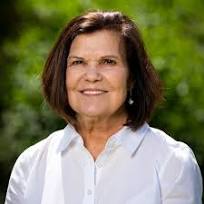Guest Blogger/ January 25, 2024/ Uncategorized
Imagine a world where personal interactions are positive, we respect one another's opinions, and we have civil conversation. Imagine yourself, as a teacher of young children, impacting the change that is possible. THAT IS THE POWER OF EARLY CHILDHOOD TEACHING. WHAT YOU DO MATTERS. IT CAN CHANGE THE WORLD!
Research over the last 20 years has revealed that young children notice and respond to interpersonal interactions beginning at birth. This includes interactions between adults and peers, leading to relationships and on into friendships.
As teachers, we have daily opportunities to impact relationship building and support social learning. It is remarkable that eye contact and subtle facial expressions can lead to relationships, positive and negative. For instance, a child waves her hands and feet excitedly when she sees another child enter the classroom. The new child looks her in the eye and smiles. The teacher notices the interaction and supports social growth by saying “Maru, you are excited to see your friend Jada! What a nice welcome!” But if the teacher ignores the interaction by saying hello to Jada and works on check-in instead of acknowledging the other child, there is a missed opportunity at best, and at worst, promotes a negative atmosphere.
Practices that promote foundations that build relationships with others include using eye-contact, smiling, describing what the infant is looking at, and mimicking the child’s sounds and facial expressions. As teachers, we can engage children by giving them our full attention and following as many cues as possible. When a positive climate has been established in the classroom with a teacher using a soft voice and gentle touches, children learn about their own and others’ emotions, and relational skills increase.
Teachers also shape children’s ability to get along with others by respecting what the children are interested in and letting them lead the focus of learning. For example, when two children tug at the same ball, say “Gray, you and Rachel want to play with the blue ball. You can roll it and bounce it to one another. We have more balls if others want to join in the fun.”
As young children grow from infant to toddler and on to preschool ages 3-5, they notice and engage in manageable as well as problem actions. As the leader of your group, you have the power to set up clear behavioral expectations and reinforce them frequently. Offering reminders before activities and commenting on appropriate behaviors are good strategies, and provide opportunities to talk about understanding someone else’s perspective.
Your powers as a teacher increase as you engage students for learning through helping children connect during activities and routines. During snack, for example, “Juan, did your mom make that pumpkin bread at home? What did she use to make it?” or “Joy, you are looking out of the window. What do you see?” Joy responds “cars.” Teacher: “How did you get to school today?” Joy: “in a car. A big blue car.” Teacher: “What makes the car go?”
You, as the teacher are connecting with a context the children have, and facilitating the children’s ability to think on their own.
And it doesn’t stop there. Your impact reaches far into the future when the children that you taught have successful experiences all through their years in school, and their early training impacts how they view the world and interact with others in it.
Research has provided data that shows a positive impact on student's performance academically, over time, when they begin their journey of learning in preschool. When children are treated from the beginning with kindness and respect, they learn how to interact with others in spite of differences. Learning begins earlier once the positive atmosphere is established by the classroom leader.
Now, imagine this world, when EC Educators begin this work with their students...a third grader may accept another student's opinion about what to play on the playground. Another child feels secure in themselves and doesn't use his fists to settle a disagreement. Another child speaks words in a respectful tone instead of a harsh, bullying tone.
And maybe a 6th grader won't pick up a gun...just imagine!!!
THAT'S YOU! YOU ARE A CHANGE MAKER! YOUR WORK CAN CHANGE THE WORLD!
Susan Hill is currently serving as a contract observer and coach for ChildSavers. She also provides training for preschools and family day homes in VA Quality by 5 CLASS Infant and Toddler Observations. She retired after 26 years as a preschool Director for a faith-based center in Richmond, where she helped grow the program, navigated a move, and acquired NAEYC accreditation. She has served on the Richmond Chapter Board for many year, and most recently serves as the VAAEYC Treasurer.

